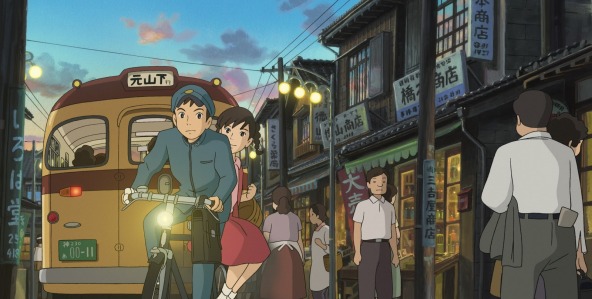Most of all, it makes the Yokohama of 1964 about as gorgeously appealing as a town can be. I watched the film at the IFC Children’s Film Festival this morning — thanks to my prescient wife’s attention to the upcoming screening — with our daughters, and our eldest and I agreed it made us want to visit Japan rather keenly. But of course what we were enraptured with was the landscape of someone’s memories, a place we can never otherwise visit. It stung a bit to know that, but it’s also what lent an otherwise slender film real weight.
Monthly Archives: March 2013
From the Wayback Machine: Fragments of the Friday Quiz
Way back in the dark backward of time, I ran a website called (with customary lack of inspiration) the Wombat File.
Short explanation for the name: I’ve always liked wombats.
Every Friday on the File, I had a Quiz — no Googling, no asking your crazy-smart 8th-grader. First correct answer in the comments won bragging rights. Even though it’s a Wednesday, it’s a good one — a two part cortex-number from 2005:
The official language of two countries which, taken together, have a population of seventy million people, is also spoken by some of the residents of a number of other countries. For the great majority of these people, though, it is a second language picked up in later life, and only learned as a mother tongue by a small proportion of its speakers, and in no nation is it spoken by all. Interestingly, the name of this language itself is, according to the linguist Nicholas Oster, derived from a word in yet another, far more widely-spoken language, which referred to the geography of the area in which the native speakers of the smaller language live.
What is this language, and what is the more widespread language from which its name derives?
(It might be easier to play this one on Facebook — where I’ll also post it.)
American Goddess
Suffrage pageantry rules. (For more on the vanished icon of Columbia, see here. h/t Andrew Sullivan)
“Entrepreneurs Can’t Wait”
Ready to trust News Corp, Amazon, and a bunch of edu-tech startups with your child’s personal academic history? Then follow the New York Department of Education down the rabbit hole to the wonderland of data mining students.
Best bit:
While inBloom pledges to guard the data tightly, its own privacy policy states that it “cannot guarantee the security of the information stored … or that the information will not be intercepted when it is being transmitted.”
Science: Iliad Still Really Old
They say the findings here “won’t have classicists in a snit” – but come on. They’ll find a reason. Classicists and their snits!



